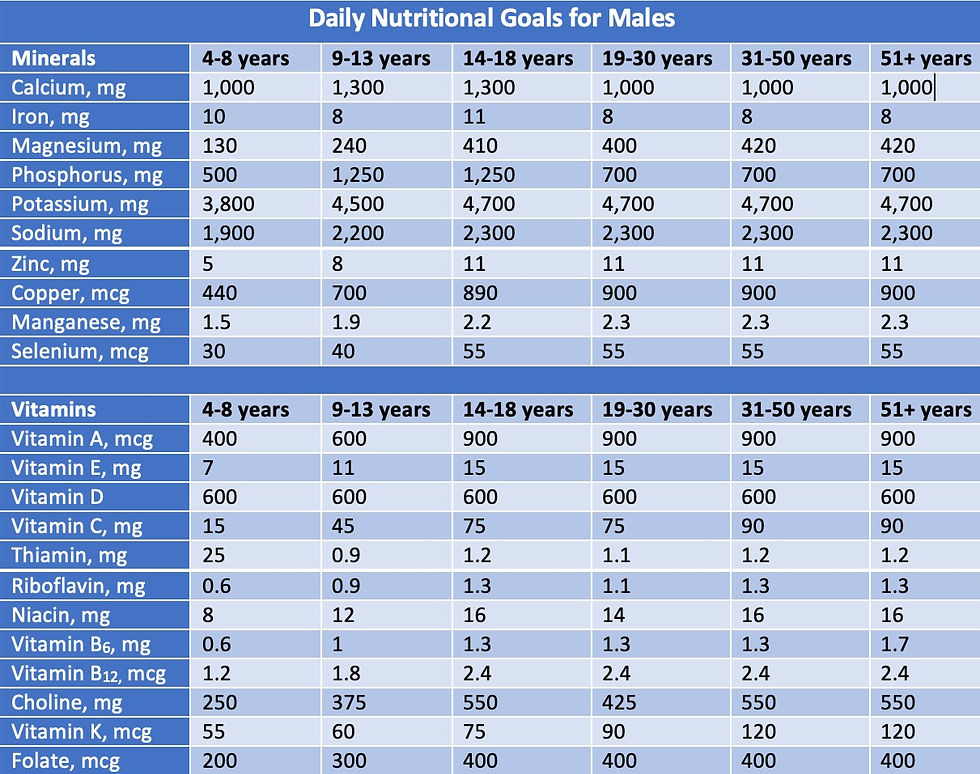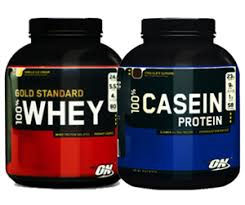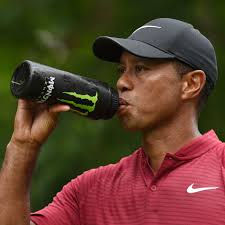Supplements. Are they worth the cost?
- schmidttm6
- Nov 23, 2020
- 7 min read

As of 2019, 77% Americans that took the "Consumer Survey on Dietary Supplements" reported using dietary supplements. The CRN's* survey found that minerals and vitamins are the most commonly consumed supplement product, with 76% of the surveyors taking them within the past year. Only 28% of the surveyors reported consuming sports nutrition supplements, such as protein, pre-workout, creatine, etc. Most of these individuals are within the 18-35 age range (1).
As an athlete, do you need to be taking vitamins, minerals and/or sports nutrition supplements?
The NCAA has certain restrictions on supplements. Be sure to double check with a coach or your athletic department before using. Click here to view a list of banned substances.Vitamins and Minerals
For the most part, it's not necessary to take these supplement. If you're choosing healthy food options and eating an appropriate amount of food for your body composition and energy expenditure, you are most likely getting enough vitamins and minerals to support your body's health. However, some medical cases and certain sports may require additional vitamins/minerals.
Iron and Vitamin D are two forms of nutrients that athletes should be aware of.
Iron plays an important role in the transportation of oxygen to the muscles. Without an appropriate amount of iron, your muscle function and aerobic capacity can be impaired. Athletes that are at the highest risk of developing an iron deficiency are female endurance athletes, according to Brumitt et al. In fact, they found that 82% of female endurance athletes were iron deficient (2). If you're an endurance athlete or a vegetarian/vegan athlete, taking an iron supplement may be beneficial for your performance; however, you should speak with your doctor before taking any supplements to ensure it's the appropriate action to take. Something you can try before consulting with a doctor is increasing your overall calorie intake, increase your heme iron (found in animal foods) consumption, and to help with the absorption of nonheme iron (found in plant foods) try to combine it with foods rich in Vitamin C (3).
Vitamin D supports bone health, muscle function, cell growth and immunity. Efficient consumption of Vitamin D may have the effect of increasing your speed and vertical even. However, a lack of Vitamin D may impair your ability to maintain bone health, slow down the aid of injury repair, limit the ability of muscle explosiveness and impair the ability of your upper respiratory tract to fight off infections. Athletes that participate in winter sports or indoor sports may lack Vitamin D. In fact, for most individuals, only 15 minutes of sunlight a day (without sunscreen) is enough Vitamin D. This can be difficult for athletes who participate in winter sports or indoors sports, so consuming Vitamin D-containing foods, such as wild salmon, egg yolks, or fortified cereals, milk and orange juice, can be a great source. If you're not capable of getting the recommended daily allowance, consult with your doctor to find an appropriate action for the issue (4).
Signs/Symptoms of an Iron deficiency include (3):
- Increased irritability or negative mood states
- Breathless or early fatigue during training
- Decreased motivation to train
- Increased rating of perceived exertion (RPE)
- Decreased aerobic capacity and adaptations
- Decreased time to exhaustion
Signs/Symptoms of a Vitamin D deficiency include (4):
- Low bone density
- Stress fractures
- Fatigue
- Unexplained muscle and joint pain
- Frequent illness
!!! The information provided in this article neither encourages nor discourages the additional consumption of vitamins and/or minerals or sports nutrition supplements. If you have reason to believe that you should alter your consumption of vitamins and/or minerals for your overall health, consult with your doctor or dietician !!!The daily recommended nutrient needs are listed below. These numbers may be intimidating, but if you're eating a well balanced diet, these nutrients should be easily attainable. Many mobile food tracking apps, such as myfitnesspal, will allow you to view your vitamin and mineral consumption, or lack thereof.


Recommended Daily Allowance, RDA (5)
Sports Nutrition Supplements
There are a variety of sports nutrition supplements on the market: protein powders, creatine, BCAA's, pre-workout and the list goes on. However, the supplements listed will be the supplements I focus on in this post.
The NCAA has certain restrictions on supplements. Be sure to double check with a coach or your athletic department before using. Click here to view a list of banned substances.Protein Powder
Is protein powder necessary for you, an athlete, to buy? Not necessarily, but it can be beneficial. If you're wanting to increase your protein intake, I recommend getting it from a natural source, such as animal protein. In some cases, such as bulking*, you may not be able to eat enough protein. A quick protein shake will get you the calories you need, but won't leave you feeling horribly full. If you're vegetarian or vegan, consuming a plant-based protein powder still isn't necessary. However, there are 9 amino acids that the body can't make, which means they are essential to get in our diet. Planning meals to include these essential amino acids will be more work than for an individual who consumes meat. I recommend quinoa or soy-based products. These contain all 9 essential amino acids. For meat eaters, it's fairly easy to consume these 9 essential amino acids (if you're eating enough protein); but for vegetarians, and especially vegans, it becomes more difficult. Getting a plant-based protein powder in during the day, such as soy protein powder, can help you not only get more protein in your diet, but also the essential amino acids. This leads me into the next supplement.
BCAAs
BCAAs*....not a necessary purchase, unless you're an individual who doesn't eat meat AND isn't able to get enough protein into your diet. Vegetarians and vegans would benefit from a BCAA supplement more than an individual who consumes animal protein. I personally don't spend my money on BCAA supplements because I'm capable of getting enough through my nutrition.
Creatine
Creatine is converted into phosphocreatine and is stored in the muscles for a fuel. It's used when a quick, short burst of energy is necessary. This would include activities lasting less than 10 seconds. A study performed by Szabo et al. divided participants into 3 groups: creatine-ingesting group, placebo-ingesting group and a control group. These individuals performed two step-tests, one at the beginning and end of the experiment. All three groups were asked to rank their perceived change in performance. The creatine-ingesting group reported the highest rating and the placebo-ingesting group reported the lowest ranking. However, the actual change in performance indicated that the control group had the greatest increase in performance and the creatine-ingesting group had the lowest change in performance (6). A 13-week experiment conducted by Larson-Meyer et al. observed a placebo group and a creatine group. The participants performed a baseline test, post 1 (5 week) test and post 2 (13 week) test. The tests included: 1-RM bench press, 1-RM smith machine back squat and vertical jump. The creatine group showed greater increase in strength over the 13 weeks compared to the placebo group, but the placebo group showed a greater increase in vertical jump. When it came to body composition, the creatine group showed less body mass increase, more lean mass increase and less fat mass increase compared to the placebo group (7). It's possible that these tests differed because creatine supplements are likely to be more beneficial for athletes that participate in repeated sprint or strength activities (Larson-Meyer's study). Endurance athletes (Szabo's study) aren't likely to benefit from creatine (8). Studies have shown that creatine can improve exercise performance, improve training adaptations, enhance exercise recovery and prevent injury. If muscle creatine stores are not in the optimal range, ingesting 0.3 grams per kilogram of body weight, four times daily, for 5-7 days will be the most effective way to increase them. Once those muscle creatine stores are full, it can be maintained by consuming 3-5 g/day. Larger athletes that participate in intense exercise may need 5-10 g/day in order to maintain optimal creatine stores (9). Don't worry! Creatine is found in animal protein so it's not classified as a banned substance. If you're an athlete that participates in intense anaerobic activities, creatine is a safe, legal and beneficial supplement to use.
Pre-Workout
Pre-workout on the other hand is not always legal, so be sure to check the ingredients before consuming. A popular ingredient in pre-workout is caffeine. Caffeine, when 3-6 mg per kg of body weight is administered ~60 minutes before performance, has been shown to improve focus, energy, muscular strength and endurance. Low-to-moderate doses of caffeine consumption (100-300 mg) has also shown improvement in performance for endurance athletes (10). If you're not an individual that typically consumes drinks with caffeine, I'd suggest consuming 3 mg/kg of body weight. While caffeine can help your athletic performance, too much can cause the opposite effect. If you do decide to use caffeine before performances, try experimenting with the dosage. In my personal experience, too much has caused me to become anxious, shaky and unfocused. A safe pre-workout to use is coffee. Again, experiment with consuming 3-6 mg/kg of body weight to see how your body reacts best.
CRN: Council for Responsible Nutrition
Bulking: progressive increase of calorie consumption beyond your body's needs in order to gain muscle mass
BCAA: branch chain amino acid; a group of 3 essential amino acids: leucine, isoleucine and valine
Sources
Dietary Supplement Use Reaches All Time High. (2019, September 30). Retrieved October 28, 2020, from https://www.crnusa.org/newsroom/dietary-supplement-use-reaches-all-time-high
Brumitt, J., McIntosh, L., & Rutt, R. (2009). Comprehensive Sports Medicine Treatment of an Athlete Who Runs Cross-Country and is Iron Deficient. North American Journal of Sports Physical Therapy, 4(1), 13-20.
Iron. (n.d.). Retrieved from https://www.teamusa.org/nutritionAppendix 7.
Vitamin D. (n.d.). Retrieved from https://www.teamusa.org/nutritionAppendix 7.
Nutritional Goals for Age-Sex Groups Based on Dietary Reference Intakes and Dietary Guidelines Recommendations. (n.d.). Retrieved October 28, 2020, from https://health.gov/our-work/food-nutrition/2015-2020-dietary-guidelines/guidelines/appendix-7/
Szabo, A., Szemerszky, R., Domotor, Z., De la Vega, R., & Koteles, F. (2017). Creatine monohydrate ingestion-related placebo effects on brief anaerobic exercise performance. A laboratory investigation. Cuadernos De Psciologia Del Deporte, 17(2), 81-86.
Larson-Meyer, D. E., Hunter, G. R., Trowbridge, C. A., Turk, J. C., Ernest, J. M., Torman, S. L., & Harbin, P. A. (2000). The Effect of Creatine Supplementation on Muscle Strength and Body Composition During Off-Season Training in Female Soccer Players. Journal of Strength and Conditioning Research, 14(4), 434-442. doi:10.1519/00124278-200011000-00011
Creatine [E-mail to 1062561658 809699761 G. Brown]. (2020, November 17).
Kreider, R. B., Kalman, D. S., Antonia, J., Ziegenfuss, T. N., Wildman, R., Collins, R., . . . Lopez, H. L. (2017). International Society of Sports Nutrition position stand: Safety and efficacy of creatine supplementation in exercise, sport, and medicine. Journal of the International Society of Sports Nutrition, 14(18), 1-18. doi:10.1186/s12970-017-0173-z
Peeling, P., Castell, L. M., Derave, W., De Hon, O., & Burke, L. M. (2019). Sports Foods and Dietary Supplements for Optimal Function and Performance Enhancement in Track-and-Field Athletes. International Journal of Sport Nutrition and Exercise Metabolism, 29, 198-209.
.png)



Comentarios